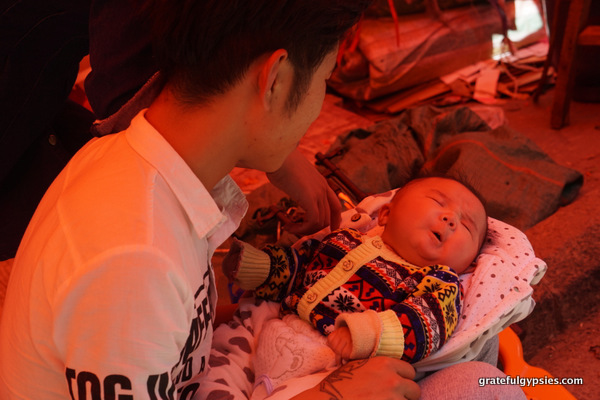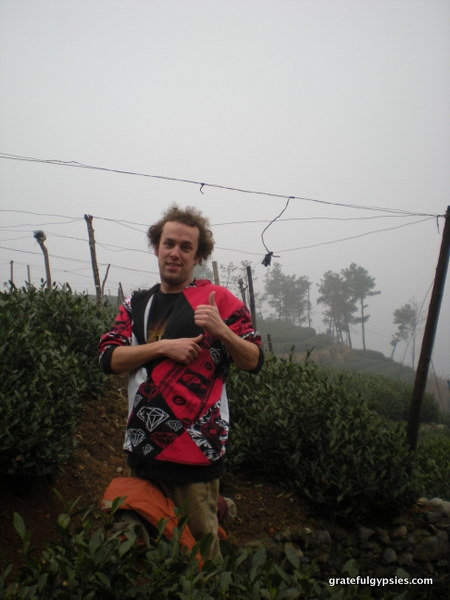Describing People in Chinese (Appearance) Posted by sasha on Feb 7, 2017 in Vocabulary
One great way to build your vocabulary and practice your Chinese is describing people. They can be people you know, celebrities you see on TV or in magazines, or even just random people on the street. Today we’ll look at how to describe someone’s appearance in Chinese.
What does he/she look like?
To get started, let’s learn how to ask the question, “What does he/she look like?”
他/她什么样子?
tā/tā shén me yàng zi
Here are some common words that you’ll often hear/use when describing someone’s appearance:
-
tall (高 – gāo)
-
short (矮 – ǎi)
-
thin (瘦 – shòu)
-
fat (胖 – pàng)
-
good looking (好看 – hǎo kàn)
-
cute (可爱 – kě’ài)
-
beautiful (漂亮 – piào liang)
-
handsome (帅 – shuài)
-
ugly (难看 – nán kàn)
For all of these words, you can simply add them after “he/she.” For emphasis, you can add the word for very (很 – hěn). Here are a few examples:
-
He’s very tall. (他很高 – tā hěn gāo)
-
She’s very thin. (她很瘦 – tā hěn shòu)
-
He’s very handsome. (他很帅 – tā hěn shuài)
-
She’s very beautiful. (她很漂亮 – tā hěn piào liang)
Generally speaking, it’s rude to call someone short or fat (at least to their face). Rather than saying “He is short,” you could say “He is not tall” (他个子不高 – tā gè zi bù gāo). Not surprisingly, you shouldn’t call a woman “fat.” Try using a word like “plump” (丰满 – fēng mǎn) instead.
Eye & Skin Color
Next up are some useful words for describing eyes (眼睛 – yǎn jīng) and skin color (肤色 – fū sè):
-
light blue (浅蓝色的 – qiǎn lán sè de)
-
blue (蓝色的 – lán sè de)
-
brown (棕色的 – zōng sè de)
-
green (绿色的 – lǜ sè de)
-
dark skin (深色皮肤 – shēn sè pí fū)
-
fair-skin (白嫩的皮肤 – bái nèn de pí fū)
For all of these, you can just add them to “He/she has…” (他/她有… – tā/tā yǒu).
-
She has blue eyes. (她有蓝色的眼睛 – tā yǒu lán sè de yǎn jīng)
-
He has brown eyes. (他有棕色的眼睛 – tā yǒu zōng sè de yǎn jīng)
-
She has fair skin. (她有白嫩的皮肤 – tā yǒu bái nèn de pí fū)
-
He has dark skin. (他有深色皮肤 – tā yǒu shēn sè pí fū)
Hair
Now let’s learn how to describe someone’s hair (头发 – tóu fǎ). Here are some useful words:
-
long (长 – cháng)
-
short (短 – duǎn)
-
straight (直 – zhí)
-
curly (卷 – juǎn)
-
wavy (卷曲 – juǎn qū)
-
dark/black (黑色 – hēi sè)
-
brown (棕色 – zōng sè)
-
blonde (金黄色 – jīn huáng sè)
-
red (红色 – hóng sè)
-
gray (灰色 – huī sè)
When it comes to the length/style, just add the word after “His/her hair is…” (他/她头发… – tā de/tā de tóu fǎ…):
-
Her hair is short (她头发短 – tā de tóu fǎ duǎn)
-
His hair is very long. (他头发很长 – tā de tóu fǎ hěn cháng)
-
Her hair is straight. (她头发直 – tā tóu fǎ zhí)
-
His hair is curly. (他头发卷 – tā tóu fǎ juǎn)
Note that in these examples you don’t need the particle 的 or 是.
There are two different structures you can use to describe someone’s hair color – “He/she has… hair.” (他/她有… 头发 – tā/tā yǒu… tóu fǎ) or “His/her hair is…” (他的/她的头发是… – tā de/tā de tóu fǎ shì):
-
She has black hair. (她有黑色的头发 – tā yǒu hēi sè de tóu fǎ)
-
His hair is blonde. (他的头发是金黄色 – tā de tóu fǎ shì jīn huáng sè)
With all those vocabulary words and grammatical structures at your fingertips, you’re ready to go! Try describing the appearance of three people you know using what you learned in this post. Next time, we’ll learn how to describe someone’s personality.

Build vocabulary, practice pronunciation, and more with Transparent Language Online. Available anytime, anywhere, on any device.







Leave a comment: